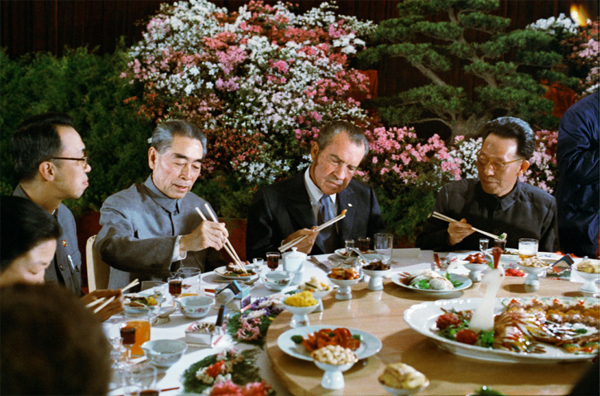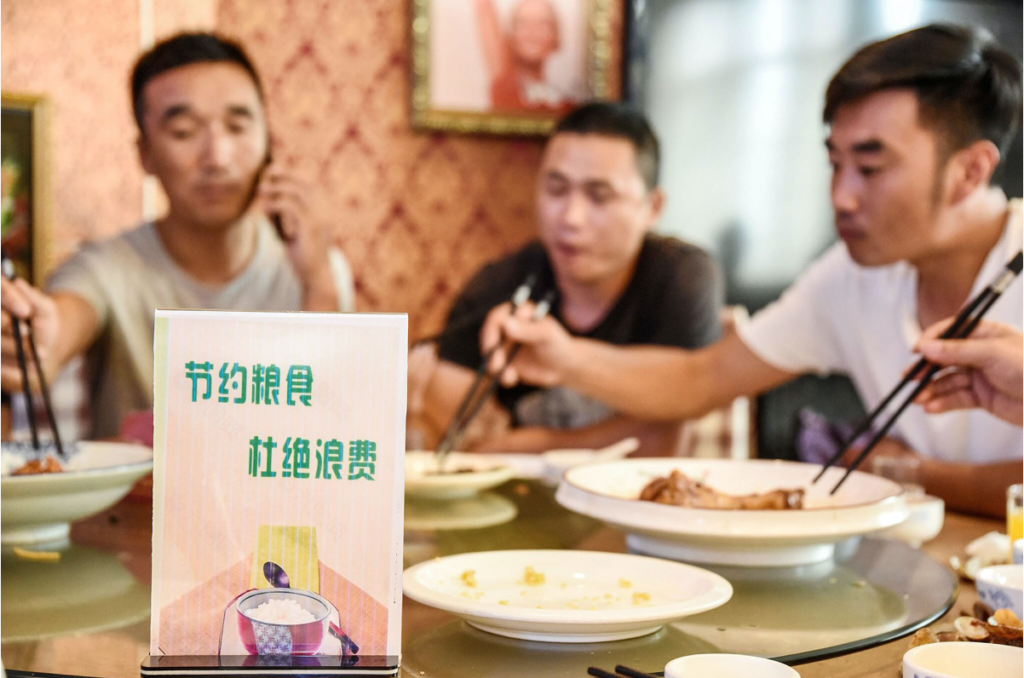20 Great Suggestions To Taste the Regional Flavors of China
Wiki Article
Top 10 Shopping Tips At Markets On The Streets Of China
1. Get there early. Visit the markets in the morning as vendors set up. They may offer better prices to make their initial sale.Pro: Shopping earlier allows for a larger selection and greater bargaining power.Cons: You need to start your day early. It may not work for every travel time.
2. Bring CashMany vendors at street markets will accept cash as payment, although mobile payments like WeChat Pay (or Alipay) are becoming more popular.Cash payments can help smooth transactions and can help you negotiate better.Con: Carrying large amounts of cash in crowds can increase the chance of theft or loss.
3. Learn Basic MandarinYou can make use of phrases such as "Zhege duoshao Qian?" to ask how much something will cost. For effective communication using phrases like "Zhege Duoshao Qian?" ("How much is it?") or even "Pianyi Yidian Ba" ("Can you lower the cost?) Effective communication is important.Pro: Builds relationships with local vendors, and displays respect for their customs.Con: The limited vocabulary leaves room for misunderstandings.
4. Inspect goods with careTIP: Ensure that you check the items thoroughly for defects or inconsistent items, especially electronic equipment, clothing and crafts.Pro It's about getting what you pay for, and you don't have to worry about disappointing yourself.Cons: It can be a time-consuming process, and vendors may get annoyed.
5. Buy ConfidentlyIn many markets on the streets, it is not unusual to haggle. In the beginning, try to cut the price by 50%-70%.Pro: Bargaining has the potential to significantly reduce costs.Con: It can be intimidating for those unfamiliar with the procedure.
6. Beware of counterfeitsBags, watches, and electronics that bear a brand name could be fake.Pro: You will not spend money on imitations that aren't worth the price.Genuine products are hard to come by, and are more expensive.
7. Respect Local CustomsTip: Learn from how locals shop, bargain, and engage with sellers to alter your methods.You'll be able blend seamlessly and avoid mistakes.Pro: It takes time to fully grasp the customs.
8. Keep Valuables SecureTIP Use anti-theft bags or store phones and wallets in a secure pocket to keep them safe from pickpockets in busy markets.Reduces risk of theft in busy areas.Pro: Extra security measures may feel restrictive or inconvenient.
9. When buying food, taste it before buying.To ensure you're getting the best quality Food vendors often provide samples of snacks and other dried products.Pro: Make sure you're satisfied with the taste and the freshness of the food you eat.Con: Some vendors might make you buy after they have provided a sample.
10. Know the market's main focusYou can find specific products in each market, including souvenirs and antiques in Beijing's Panjiayuan or Shanghai's Yuyuan Market. Do your research prior to shopping to ensure that it is in line with your shopping preferences.It helps you save time as well as helps you focus your concentration.Cons: You will be restricted in your spontaneity when you adhere to the study.
The Benefits of Shopping at Markets on the Street MarketsUnique Finds: There are a variety of things you can't find in a traditional store including handmade products and local snacks.Street markets are cheaper than malls or stores.Cultural Experience - Engaging with local merchants and walking through the markets is an opportunity to immerse in the tradition.Large Variety: A single market may have everything from gifts to food and clothing.The cons of shopping streets MarketsFalse products: The probability of finding copyright goods or inferior quality products is very high.Crowds: Particularly on weekends and holidays markets can be extremely bustling.Vendors may push sales strategies. This can make the experience seem overwhelming.No Returns The majority of purchases are final, and there's little room for exchanges or refunds.Following these tips will assist you in avoiding the most common pitfalls and make the most of China's street market. Take a look at the top rated the best food destinations in China for blog tips including Chinese food you must try, the flavors of Chinese cuisine, food guide to China best cities, explore diverse Chinese dishes, taste the best dishes across China, the best food destinations in China, discover Chinese street food, discover China culinary delights, a tour of China regional cuisine, explore China riCh food history and more.

Top 10 Tips When Visiting Temples That Are Famous In China During The Season
1. Visit During the Off-Season (Autumn/Winter)Tip Think about visiting famous temples in China in the off-season (autumn or winter) usually from November to February. The time of year when less visitors are visiting and the weather tends to be more pleasant.
Pro: It is quieter and offers peace and tranquility.Con: The weather could be chilly than usual, which could make temple tours in the outdoors less enjoyable.2. Prepare yourself for extreme weather.Tip: Temperatures may differ greatly during different seasons. Winters may be bitterly cold, while summer temperatures are usually scorching. Be sure to check the weather forecast and take the appropriate precautions.
Pro tip: Be prepared for all weather conditions, and enjoy your journey in peace.Con: Packing to accommodate seasonal extremes is inconvenient If you're traveling with a light.3. Visits during the spring and summer for lively FloraVisit temples in spring or summer to see beautiful gardens and blooming flowers. Also, you can be awed by the lush scenery around the temples.
The temple grounds are beautiful to visit.Con The summer months can be scorching hot and packed during holidays, especially the national ones.4. Take into consideration festivals and special events.Plan your visit to coincide with festivals that are traditional, such as the Chinese New Year (January/February) and the Mid-Autumn Festival. These seasons are full of rituals, celebrations as well as the opportunity to observe the temple's vibrant cultural life.
Pro: The temples give an experience that is distinctive and exciting, including many traditional events.Con: Temples can be very crowded, and accommodation costs can increase during festivals.5. Beware of Peak Holiday SeasonsAvoid visiting during tourist-busy seasons such as Chinese new year, Golden Week, or the Golden Week of October, where temples can be crowded.
Pro: More peaceful experiences without crowds, offering a more spiritual experience.Con: You may not be able to catch some of the special events if in the area during peak times.6. Check Temple Closures during WinterA tip: Some temples could shut down or operate with restricted hours during the winter, especially if they are located in more remote regions or the northern regions. Make sure you check prior to visiting.
Pro: Prevents wasted trips and ensures you can organize your other activities in advance.Con: There could be reduced hours of operation or temples shut completely to allow construction work.7. Early Morning Visits in SummerGet there early to avoid the hot midday sun. Many temples will open at dawn. This is a peaceful moment with less people.
The cooler temperatures and absence of crowds makes for more relaxing vacation.Cons Cons: Getting up early could not be ideal for everyone.8. Be prepared for rain during the summerThe summer months can bring heavy rains, particularly in southern China. Pack rain gear or an umbrella for trips in the summer.
Pros: You will be able to take pleasure in the beauty of temples even when it rains.Cons: The rain can make outdoor activities more difficult and cause temple grounds become slippery.9. The fall season is the ideal time to visit temples in the mountainsTip: Visit temples in the mountains, such as Mount Wutai (or Mount Emei) in autumn. The weather is pleasant and the fall foliage makes an amazing scene.
Pro The cooler temperatures make hiking and outdoor exploration more enjoyable, and the views are spectacular.Con: Popular temples in the mountains may draw crowds on weekends and holidays.10. Make use of the Lunar Calendar to Plan Specific EventsTip - Many temples in China use the lunar date calendar. Certain rituals and events are also correlated with certain lunar dates. Check the calendar for important temple events like Buddha's birth, the Lantern Festival and other ceremonies.
Pros Unique cultural experiences and deeper understanding of local religious practices.Cons: It could require extra planning time and research to match your travel dates to the lunar calendar.The Benefits of Visiting Chinese Temples in the SeasonFewer Crowds: Off-season visits are a quiet and contemplative experience.Cultural Events: The celebrations offer a deeper insight into the local religion and culture customs.Scenic Beauty: The season of spring or autumn is the best time to see stunning landscapes, vibrant gardens and temples.Tempel exploration is more pleasant in the winter and autumn months.Pros and Cons of Seasonal Chinese Temples VisitsUnpredictable weather : winter may be cold, while summer may be too hot and impact your comfort.Temple Closures: Certain temples may be closed for a limited time or closed during the off-season or in extreme weather.The crowds at festivals are often a problem. festivals and holidays can draw huge crowds, making it difficult for people to fully experience the temple's tranquil atmosphere.Limited Activities - Some ceremonies and events can only be held during certain seasons.If you choose the best time for your visit and plan accordingly, you'll be able to guarantee a more pleasant and memorable experience in the famous temples of China. Understanding the changing seasons, can help you make the most of your time. Take a look at the top rated explore diverse Chinese dishes for more recommendations including the flavors of Chinese cuisine, China food heritage revealed, China culinary heritage, delicious Chinese dishes to try, explore China riCh food history, a guide to China food scene, a deep dive into China food culture, a taste of China best local foods, China flavorful food culture, taste the best dishes across China and more.
